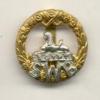I am trying to cobble together a good pc from several half dead ones, and really struggling to find a match between the license keys I have and the XP discs I am installing.
I have two legit product keys, from two of the computers. One is a label on the machine, that says "Windows XP Home Edition Mesh Computers PLC" so I take this to be an OEM version. The other I recovered uing a keyfinder programme, and is identified as a Windows XP Pro key, with no indication on the actual machine that it is a major brand.
Just how many variations of each variant of Windows are there? So far I have come across the following variants in in each variant:
- Retail
- Corporate
- OEM (Is a (eg) Dell OEM build/product key the same as a (eg) HP one, or are they all specific to the manufacturer?
- Volume
I am sure there must be more. I am trying to keep the cobbled pc legit - it would be so much easier just to use a pirate copy!!
Great set of forums (fora?) BTW - really glad I discovered it....
Thanks
Mijj

















 Sign In
Sign In Create Account
Create Account

